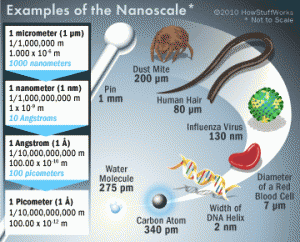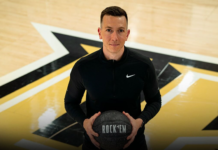
The University of Central Florida will be offering a new research-focused master’s degree program in nanoscience in the Fall of 2015. UCF is currently the first and only university in Florida that is offering this program and is geared toward students who are earning a bachelor degree in physics, chemistry, biology or engineering.
According to the National Science Foundation, the estimated worth of the global nanotechnology-related goods and services is about $1 trillion. The organization also noted that between the years of 2000 and 2008, the amount of people in the nanotechnology workforce grew by about 25 percent. Due to the promising growth of this field, UCF also plans to someday offer a doctoral degree in this area of study as well.
“Nanotechnology is a big part of the world’s increase in technology”, senior industrial engineering student Alex Mancini remarked. “And it’s great that UCF is getting on board for new innovations before other schools”.

The National Nanotechnology Initiative states that nanoscience, is the study of science, engineering, and technology at the nano level, which is about 1 to 100 nanometers (see image on right for reference). Nanotechnology has an endless amount of applications such as in the manufacturing of automobiles, the cleaning of water, the creation of sporting equipment, the improvement of solar panels and even in the aiding in the early detection of illnesses such as Alzheimer’s. The diversity of applications for this type of science is a part of the reason for why this field is growing so rapidly.
In 2005 the NanoScience Technology Center, or NSTC, was formed at UCF and has already earned distinction due to its progressive research in the field.
“Once i saw UCF was offering nanoscience and nanotechnology, I thought it would interesting to study the largest, and the smallest things in our universe”, sophomore physics and astronomy student Dior King-Aris said in regards to why she is potentially interested in the program.
Professor Qun “Treen” Huo says that the program hopes to enroll 10-15 students at the beginning of the program. If you would like more information about the field of nanoscience or if you are interested in the degree, you can find out more information on the NSTC website by clicking here.






